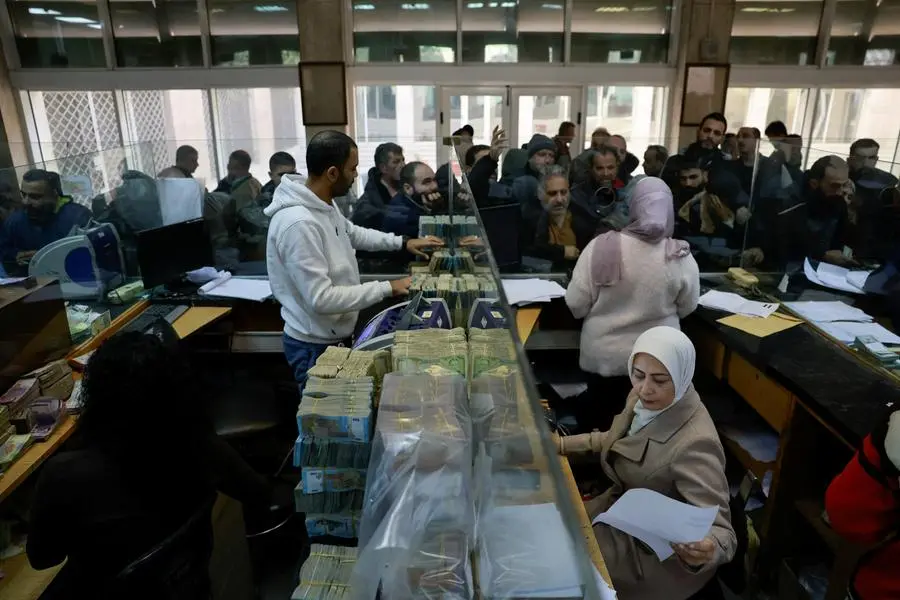PHOTO
DAMASCUS - Syria's finance minister said on Sunday the government would hike salaries for many public sector employees by 400% next month after completing an administrative restructuring of ministries to boost efficiency and accountability.
The increase, estimated to cost 1.65 trillion Syrian pounds, or about $127 million at current rates, will be financed by existing state resources plus a combination of regional aid, new investments, and efforts to unfreeze Syrian assets held abroad.
"(This is) the first step towards an emergency solution to the economic reality in the country," Mohammed Abazeed, the finance minister in Syria's caretaker government, told Reuters, adding that this month's wages for public sector staff would be paid out this week.
These measures are part of a broader strategy by Syria's new caretaker government to stabilize the country's economy following 13 years of conflict and sanctions.
Salaries of Syria's public sector employees under toppled President Bashar al-Assad's regime were around $25 a month, putting them below the poverty line, along with the majority of the country's population, Abazeed said.
The hike would follow a comprehensive evaluation of up to 1.3 million registered public sector employees to remove fictitious employees from the payroll and would affect those with sufficient expertise, academic qualifications, and the necessary skills for reconstruction.
Syria's state treasury is facing liquidity challenges emerging from a war. The majority of money available in the central bank is Syrian currency, which has lost much of its value. However, the new government was promised assistance from regional and Arab countries, the minister said.
"The launch of investments in the country in the near future will also benefit the state treasury and allow us to finance this salary increase," he said, adding the central bank currently has sufficient funds to finance the next few months.
The government expects to retrieve up to $400 million in frozen Syrian assets abroad, which could co-finance the initial government expenses.
Syria's caretaker government is also discussing exempting taxpayers, as much as possible, from penalties and interest and working on overhauling the tax system within the next three months to achieve tax justice for all taxpayers, with a first draft expected within four months.
"By the end of this year, we expect having a well-designed tax system that takes the interests of all taxpayers into account," he added.
(Reporting by Riham AlkousaaEditing by Mark Potter and Sharon Singleton)




















